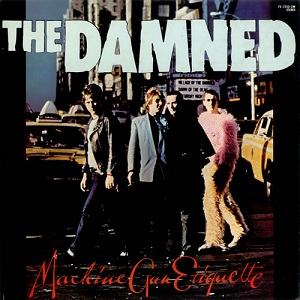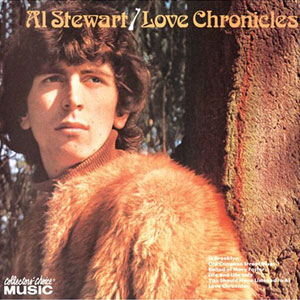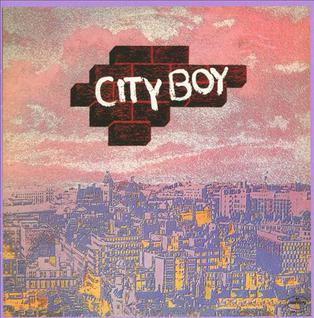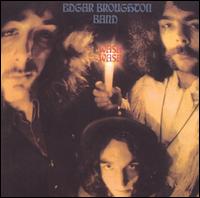
Pretty Things were an English rock band formed in September 1963 in Sidcup, Kent, taking their name from Bo Diddley's 1955 song "Pretty Thing", and active in their first incarnation until 1971. They released five studio albums, including the debut The Pretty Things and S. F. Sorrow, four EPs and 15 UK singles, including the Top 20 UK Singles Chart "Don't Bring Me Down" and "Honey I Need". They reformed later in 1971 and continued through to 1976 issuing three more studio albums, and reformed once again from 1979 to 2020 releasing another five studio albums finalising with Bare as Bone, Bright as Blood.

The Steve Miller Band is an American rock band formed in San Francisco, California in 1966. The band is led by Steve Miller on guitar and lead vocals. The group had a string of mid- to late-1970s hit singles that are staples of classic rock radio, as well as several earlier psychedelic rock albums. Miller left his first band to move to San Francisco and form the Steve Miller Blues Band. Shortly after Harvey Kornspan negotiated the band's contract with Capitol Records in 1967, the band shortened its name to the Steve Miller Band. In February 1968, the band recorded its debut album, Children of the Future. It went on to produce the albums Sailor, Brave New World, Your Saving Grace, Number 5, The Joker, Fly Like an Eagle, and Book of Dreams, among others. The band's album Greatest Hits 1974–78, released in 1978, has sold over 13 million copies. In 2016, Steve Miller was inducted as a solo artist into the Rock and Roll Hall of Fame.
Edgar Broughton Band were a British blues rock band founded in Warwick in 1968, and in their initial form were operative through to 1976. The group were also a significant influence on the emerging politically conscious and spiritually aware proto punk scene of the 1970s. They were a power trio consisting of brothers Edgar and Steve Broughton (drums) with Arthur Grant (bass), which was augmented at various times by a second guitarist and/or keyboardist, significantly Victor Unitt. They released five studio albums, including Sing Brother Sing, and six singles, including "Out Demons Out", on the EMI Harvest label and one further studio album for NEMS. The group reformed from 1978 to 1982, initially renamed as The Broughtons, issuing two more studio albums, and again from 2006 to 2010 with Edgar's son Luke for live appearances only.

Machine Gun Etiquette is the third studio album by English punk rock band the Damned, released on 9 November 1979 by Chiswick Records. The album peaked at No. 31 on the UK Charts

The Grateful Dead is the debut studio album by the American rock band the Grateful Dead, released by Warner Bros. Records on March 17, 1967. According to the biographies of both bassist Phil Lesh and drummer Bill Kreutzmann, the band released the album as San Francisco's Grateful Dead.

Live at the Fillmore Auditorium is a live album by the American musician Chuck Berry. He was backed by the Steve Miller Blues Band. Berry's second live album, it was released in 1967 by Mercury Records.

I Got Dem Ol' Kozmic Blues Again Mama! is the debut solo and third studio album overall by American singer-songwriter Janis Joplin, released on September 11, 1969, by Columbia Records. It was the first album which Joplin recorded after leaving her former band, Big Brother and the Holding Company, and the only solo album released during her lifetime.
The Choir was a garage rock band largely active in the greater Cleveland area from the mid-1960s into the early 1970s. Originally called The Mods, their largest commercial success came with the release of their first single "It's Cold Outside" in December 1966. The song, considered to be a classic of the garage rock era, was featured on Pebbles, Volume 2, one of the earlier garage rock compilation LPs. The flipside, "I'm Going Home" was included as a bonus track when the Pebbles album was reissued as a CD, and it can also be found on a garage rock compilation LP on Ohio bands, Highs in the Mid-Sixties, Volume 9. The Choir is well known for containing three of the four original members of Raspberries.

Parachute is the fifth studio album by the English rock band Pretty Things, released in 1970. It is their first album without guitarist Dick Taylor.

Love Chronicles is the second studio album of folk artist Al Stewart, released in September 1969. It was his first album to be released in the US. Among the supporting musicians were Jimmy Page and four members of Fairport Convention: bassist Ashley Hutchings, guitarist Simon Nicol, drummer Martin Lamble and guitarist Richard Thompson.

Think Pink is the debut album by English psychedelic musician Twink. Recorded in 1969, the album was released on Sire Records in the US in 1970 and Polydor Records in the UK in early 1971. It was produced by Mick Farren and featured members of The Pretty Things, The Deviants, plus Steve Peregrin Took of Tyrannosaurus Rex. The final two tracks were the only commercial release of any songs written by Took until 1990, ten years after his death.

Sing Brother Sing is the second album by English psychedelic rock garage rock proto punk power trio, Edgar Broughton Band. It was originally released as "Harvest SHVL 772" in June 1970. The 2004 CD reissue contains 8 bonus tracks.

Edgar Broughton Band is the self-titled third album by the Edgar Broughton Band. The album is known amongst fans as "The Meat Album", as the album cover features meat on hangers in a warehouse; a human can also be seen hanging amongst the meat. The 2004 CD reissue features three bonus tracks. Several outside musicians were used on this album including Mike Oldfield and Roy Harper.

In Side Out is the fourth album by psychedelic rock group, Edgar Broughton Band. The album was originally released as "Harvest SHTC 252" in July 1972. The 2004 CD reissue features three bonus tracks.

Oora is the fifth album by psychedelic rock group, the Edgar Broughton Band, first released in 1973. It was the Broughtons' last album for Harvest Records.

Bandages is the sixth studio album by psychedelic rock group, the Edgar Broughton Band. This was the first album to be made after the band's departure from Harvest Records. It was originally released as "NEMS NEL 6006" in 1976. The album was reissued in 2006.

Superchip: The Final Silicon Solution? is the eighth and final album by The Broughtons. This album saw them on their own record label, and were credited as The Broughtons as they were called on their previous album, Parlez-Vous English?. This album sees the band with a slightly different sound, with prominent use of synthesisers, but still retaining their original psychedelic rock roots. The album was originally released as "Sheet Records Sheet 2" in 1982. The 2006 CD reissue features one bonus track, which was an electronic dance track created by Edgar Broughton and his son, Luke Broughton.

The Charlatans is the self-titled debut album by the San Francisco psychedelic rock band the Charlatans, and was released by Philips Records in 1969.
Percewood's Onagram (1969–1974) was a German-American band founded by Wolfgang Michels based in Bremen, Germany. The music can be described as psychedelic rock and progressive rock with folk music elements, some call it Krautrock.

City Boy is the debut album from the English rock band City Boy.

















